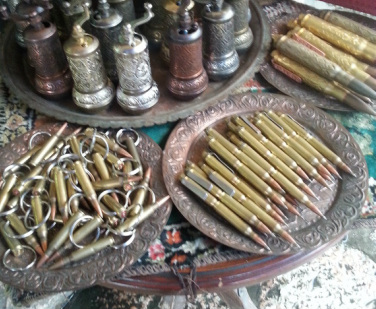|
Sometimes I (Rich) hear Americans apologizing for the fractured American Christian church. So many denominations, so many different churches, each thinking they have the truth and (by implication or by pronouncement) their neighboring churches do not. Wouldn't it be great if there weren't 72 different Baptist denominations in North America (including Pentecostal Free Will Baptist Church and Two-Seed-in-the-Spirit Predestinarian Baptists) but just one? Do we really need 13 Presbyterian denominations? Well, I have thought a great deal about this, having traveled many times to places where there is one predominant and often governmentally-supported form of Christian faith (such as Mexico, England, France, Spain and also Serbia, Poland, Croatia and lately Russia and Belarus). In countries where there is one predominant (and dominating) religious expression you end up seeing one of two things happen: 1) the church becomes so entangled with the state that it uses political power to further its own political ends, persecuting others of different faiths and even different expressions of the same faith in Jesus; or 2) the church becomes largely irrelevant to modern life and, even if still supported by state funds, is largely dead and empty. In Western Europe things largely have gone this second direction, while in Eastern Europe largely in the former direction. Of course, there are exceptions, but in general, while unity in the church is something Paul seems to value highly in Ephesians 4, on national scales it seems to lead to church death or corruption and widespread nominalism. In fact, I cannot really think of a counter example, where a unified church expression leads to spiritual vitality.  I met this morning with a pastor in Sarajevo, who described the history of the church in Bosnia. He was lamenting the equation of religious affiliation with national identity. What made religious affiliation equal to ethnic and national identity is the largely homogenous (and often historically established) ethnic churches that were quite happy to have the local monopoly on religious expression. This, in combination with the historical grievances on all sides, contributed to a nationalism and ethnic hatred that produced, most recently, the Balkan war. As our host in Bosnia kept saying, this is the place that gave our language the term "balkanization." (The picture is of a gift shop's wares in Sarajevo, where the spent bullet shells from the war have been turned into key chain fobs and pens for tourists. Who comes to Sarajevo to get a souvenir of the Balkan war?) The war has made evangelism in Bosnia especially difficult, say in comparison with other Eastern European countries. The IFES team talks with nominal Muslims all the time (it is their primary activity) who are unhappy with their life or have questions or are willing to dialogue about God. But they are not very likely to consider the claims of Jesus: after all, Jesus is the guy that the Orthodox Serbs and the Catholic Croats claim is their Lord, and they are the ones who were shelling and sniping at them during the war. (As our host said, there were really no good guys during that war, but the Serbs were the early aggressors.) So evangelism has gone very slowly, in part because of the close identification of ethnic identity and religious faith. Muslims can't convert because it isn't just a matter of individual conscience and choice, but of group identity and loyalty, and the other side is the most recent historical aggressor. I will think more about the implications of the lessons learned by evangelical Christians about ministry to Muslims after what is perceived of as a war between Christians and Muslims (that may continue to have relevance for Americans as we think of the foreign policy implications for ISIS and other threats in the Middle East). But I don't have more on that topic now. But I am left with my observation that institutional unity in the Church doesn't often produce peace and tranquility, but quite the opposite. So I am actually happy with the American Church being at odds about all sorts of things, and with hundreds of denominations and thousands of independent churches. I think it brings healthy competition to the spiritual marketplace, and it at least is one of the things that has kept the American Church, for all its many faults, dynamic while in most places in the Western world the church is in rapid retreat. (And for those who want to point out that the Church in Africa is even more fractured and more dynamic, I would only say, Yes! and Amen!)
2 Comments
Ted Miyake
9/13/2014 03:06:20 pm
Wow. You have been busy since I last checked you blog! Appreciate the updates and insights. Lot to contemplate... Continuing to pray for you and those with whom The Lord puts you. Traveling mercies and grace...the love of God, grace of Christ and the fellowship of the Holy Spirit be with you al...
Reply
Lisa Uji
10/14/2014 05:14:05 am
See now I'm reading this a bit late and have a fuller view of your experiences and reflections on this topic. While institutional unity seems to foster nominalism or nationalism, spiritual unity is another matter. I've been walking with this group that is really shifting my understanding of the body of Christ. I feel like my experience in the U.S. is that "unity" is based on either having the same theology or it's based on ministry and working together. True unity can only occur by the power of the Holy Spirit. So the fleshly way of seeing one another gets set aside. Standing together in His presence, we can receive the revelation of who we are as the body of Christ.
Reply
Leave a Reply. |
Archives
April 2024
AuthorRich and Lisa Lamb Categories |
 RSS Feed
RSS Feed